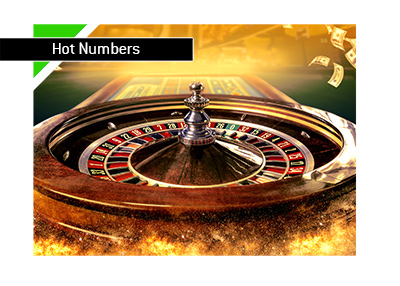Roulette Strategy Gambler's Fallacy
- Roulette Strategy Gambler's Fallacy Argument
- Roulette Strategy Gambler's Fallacy Definition
- Roulette Strategy Gambler's Fallacy Examples

The Gambler's Fallacy is the misconception that something that has not happened for a long time has become 'overdue', such a coin coming up heads after a series of tails. This is part of a wider doctrine of 'the maturity of chances' that falsely assumes that each play in a game of chance is connected with other events. What About the Gambler’s Fallacy and the Game of Roulette? Roulette is perfect for understanding how to disprove the Gambler’s Fallacy. In fact, most roulette betting systems are products of the Gambler’s Fallacy. When you bet on a single number in roulette, you can easily calculate the probability of winning that bet. Certainly one of the more interesting topics in roulette is that of the 'Gambler's Fallacy'. 'Something is Due based on past spins' Let's run off an example, because it so easy to prove that this 'Fallacy' is no fallacy at all but is instead a predictable event. Using a 00 wheel - After 114 spins we have 5 numbers that haven't appeared.
As human beings, we’re naturally wired to look for patterns in the world around us. Unfortunately, this also leads to a tendency to see patterns where they don’t actually exist. This tendency is at the heart of the Gambler’s Fallacy, also known as the Monte Carlo Fallacy.
Roulette Strategy Gambler's Fallacy Argument
The name “Monte Carlo Fallacy” comes from an incident in Monte Carlo in the summer of 1913, when a roulette wheel came up black fifteen times in a row. Gamblers decided that red <i>had</i> to come up soon, and bets on red rained down on the table. As black came up again and again, the players increased their stakes, becoming fanatically convinced that red was due. In the end, the wheel hit black twenty-six times, and the players who bet on red had been cleaned out of millions of francs.
The Gambler’s Fallacy, simply stated, means forgetting that a roulette wheel, like other gambling devices, is random. The wheel has no memory, and the results of one spin have no effect on the results of future spins. As long as the wheel is fair, past results cannot be used to predict future outcomes. Even if the ball stops at 23 five times in a row, the odds of it stopping at 23 will be exactly the same for every future spin.
The Gambler’s Fallacy shows up when players look for “streaks” or “hot” numbers. Conversely, as in the Monte Carlo example, it can also lead players to assume that a certain bet is “due” because it hasn’t won in a while.

Roulette Strategy Gambler's Fallacy Definition
In the heat of a gambling session, when you’re looking for any advantage you can get to cut the house’s edge, it can easy to forget you’re playing an essentially random game. Don’t fall into the trap of looking for patterns where there are none, or trying to predict the future based on random information.
Roulette is one of the oldest casino games. You can make a great profit with it without a strategy. The only thing you need to do is place a bet on a certain number or color. However, it’s also possible to make a more careful choice by using a strategy for Roulette. For many players who love this game, a strategy is recommended. Some gamblers have misconceptions about Roulette though, and this leads to mistakes. How can you prevent this?

What is the Gambler’s Fallacy?
Many Roulette players make a mistake that is known as the ‘Gambler’s Fallacy’. Perhaps you’ve heard about it before. It’s important to be aware of this mistake, so that you will not become another victim. The idea behind the Gambler’s Fallacy is simple. Players think that if something during the game has happened recently, the chance that it will happen again decreases. Imagine that in the past rounds the color red fell several times. You might think that this increases the chance that black will fall. However, this is a big misconception. The chance that black or red will fall is exactly the same as the previous turn. You simply cannot use probability calculation like you’ve learned at high school.
Roulette Strategy Gambler's Fallacy Examples
You cannot influence the outcome
The human brain often thinks that it can influence the outcome of a game by using calculations. In reality, this is not true, especially when it comes to Roulette. Interestingly enough, casinos seem to reply to the Gambler’s Fallacy. If you pay attention, you will see that a casino always put the numbers and colors that have fallen on the results board. If a player sees what has happened, he or she might react to it with a certain bet. Try to avoid this by seeing each turn as a separate thing.

How do casinos react?

There are more reasons why casinos put the fallen numbers and colors on a screen. It also shows when something is wrong with the wheel. Players notice an anomaly and the game has to be reset. A broken wheel can influence the game in a negative way. The theory is that it increases the chance that the Roulette ball will end up at a certain number or at one side of the wheel for several rounds. This can affect the house edge, which is something the casinos like to avoid.
How to avoid this common mistake
Use your mind and do not make the most common mistake during Roulette: the Gambler’s Fallacy. This is also the case with doing ‘the exact opposite’. You make the same mistake, because it’s simply not possible to influence the game. Use a proven Roulette strategy instead, if you like to win more often. Good luck!